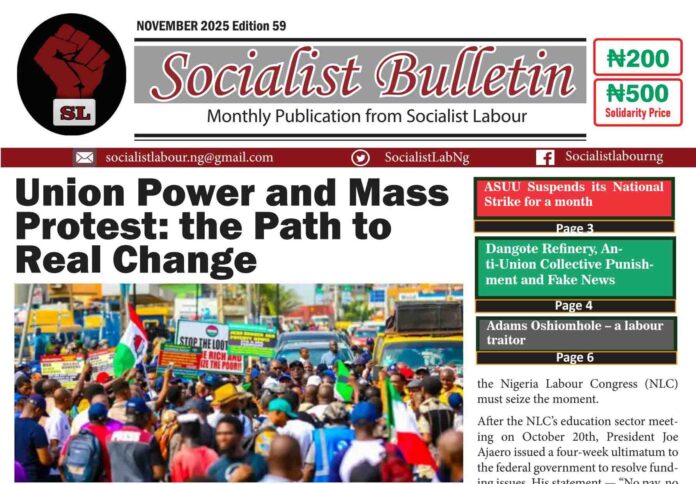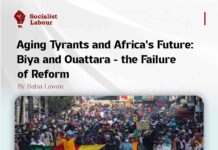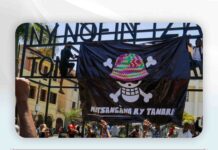The events of Monday, 20th October, revealed a growing wave of public frustration across Nigeria. In the Southeast, a near-total shutdown in five states signalled deep anger over hunger, repression, and the continued detention of Nnamdi Kanu. Meanwhile, in Abuja, a small but brave protest organized by Sowore and Take It Back was met with an overwhelming show of force — a response that exposed the Tinubu government’s fragility.
The shutdown in the Southeast was not just about Nnamdi Kanu. It was a cry against worsening hunger and economic despair. In Umuahia, Abia State, street protests gained traction, reflecting the depth of public discontent. The fact that over two-thirds of Nigeria’s prison population remains unconvicted — many languishing for years without trial — only fuels sympathy for Kanu, who has been held by the DSS since his controversial extradition from Kenya in 2021.
Yet, the absence of meaningful alternatives from southeastern governors — who have failed to address poverty, inequality, and insecurity — raises serious doubts about the viability of Biafra as a solution. Still, in the face of neglect, the call for independence continues to attract support.
In Abuja, a modest protest of a few dozen people was met with tear gas, road closures, and a heavy security presence. Central Abuja was paralyzed, and even commercial hubs like Jabi Plaza were shut down. This reaction far exceeding the scale of the protest, reveals a government rattled by dissent. Despite a High Court ruling that limited protest bans to specific areas, the state’s response was indiscriminate and aggressive.
Such repression is not just a local issue. It reflects a global trend of governments responding to peaceful protest with force. In Nigeria, this trend is intensifying and it demands a strategic rethink from activists.
Real change requires mass mobilization — with organized labour at its core supported by street protests. The recent ASUU strike showed the power of coordinated action. Now, the Nigeria Labour Congress (NLC) must seize the moment.
After the NLC’s education sector meeting on October 20th, President Joe Ajaero issued a four-week ultimatum to the federal government to resolve funding issues. His statement — “No pay, no work” — signals a readiness to escalate. But Ajaero, like many in government, has a history of breaking his promises. That is why union branches and civil society organizations must rally behind this strike and hold leadership accountable.
To force meaningful concessions from the Federal and state governments, we need disciplined, large-scale protests with clear demands. We must organize within our trade unions, build alliances across civil society, and ensure that every action is backed by mass participation. The recent ousting of Madagascar’s president – driven by union-led protests, shows what’s possible.
The 20th October protests in the South East and Abuja expose both the people’s deep frustration with hunger and repression and the Tinubu government’s weakness. The NLC has the power to force the government to honour its promises and adopt policies that favour the people. We need to put maximum pressure on them to use this power through our trade union branches and civil society organisations.
Download our full Socialist Bulletin for November 2025 with the link below:
https://socialistlabour.com.ng/wp-content/uploads/2025/11/SL-bulletin-November-2025.pdf






